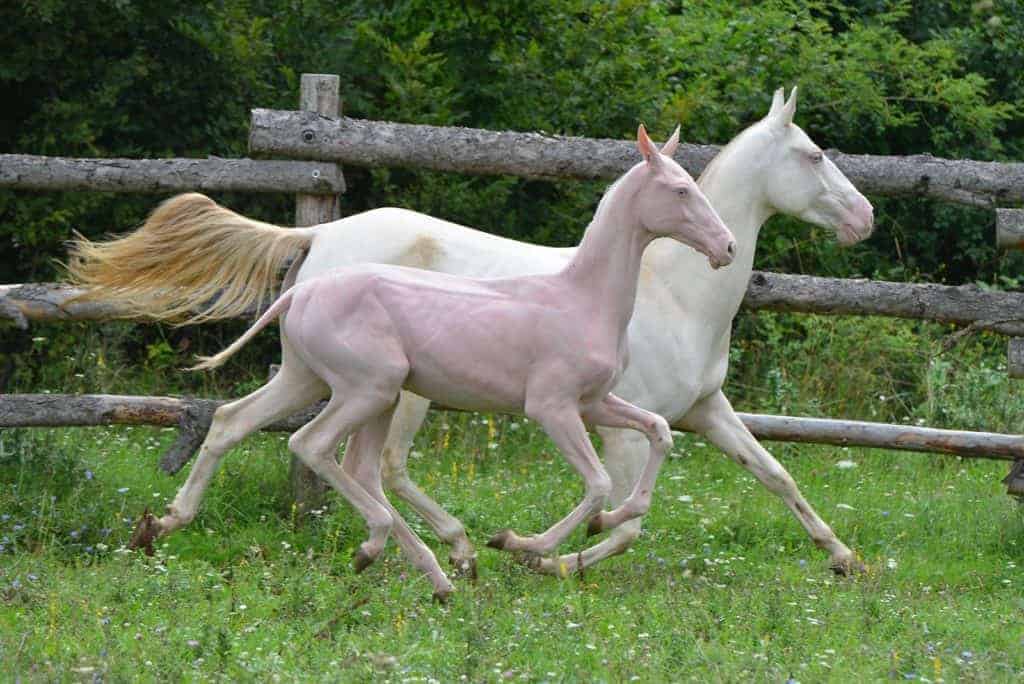
Why Do Equine Genetic Disorders and Coat Color Seem Related?
Lavender foal, lethal white, blindness, and deafness are all color-related genetic problems. Dr. Samantha Brooks explains.
Horse breeding from planning through foal care

Lavender foal, lethal white, blindness, and deafness are all color-related genetic problems. Dr. Samantha Brooks explains.

Dr. Samantha Brooks explains how dominant and recessive genes differ and how they are expressed in individual horses.

Dr. Ernest Bailey explains how to collect a DNA sample from your horse and how the lab tests it.

The event will take place Sept. 9 at Hoosier Park Racing and Casino in Anderson, Indiana.

Weanlings require additional support and feeding adjustments as they grow. Here’s what to remember.

Keeping a precise medical record for pregnant mares could help researchers better understand fetal malformations.

Researchers say naked foal syndrome is related to a nonsense gene variant and appears to be unique to Akhal-Tekes.

Of the 270 respondents, only 74 (27%) said they’ve had a horse tested for a genetic disorder or disease.

Research is offering more insight into inherited diseases and conditions in our horses. Learn more about HYPP, PSSM, overo lethal white syndrome, lavender foal syndrome, HERDA, SCID, and more.

Foals’ size and fragility present veterinarians with unique diagnostic and treatment challenges in the face of colic.

Researchers are discovering how the vast and varied microbes in the horse’s gastrointestinal tract impact equine health.

There was no difference in birth weight, but placenta weight was lower and size was smaller in winter-foaling mares.

Dr. Josie Traub-Dargatz shares lessons learned from equine disease outbreaks and tactics for avoiding infection spread.

The paternal lines of nearly all modern horses trace to stallions brought to Europe from Asia over the last 700 years.

From 1995 to 2014, the OIE received reports of 54 disease events associated with international horse movement.
Confirmed diseases include influenza, EHV, strangles, nocardioform placentitis, piroplasmosis, EIA, and more.
Stay on top of the most recent Horse Health news with
"*" indicates required fields